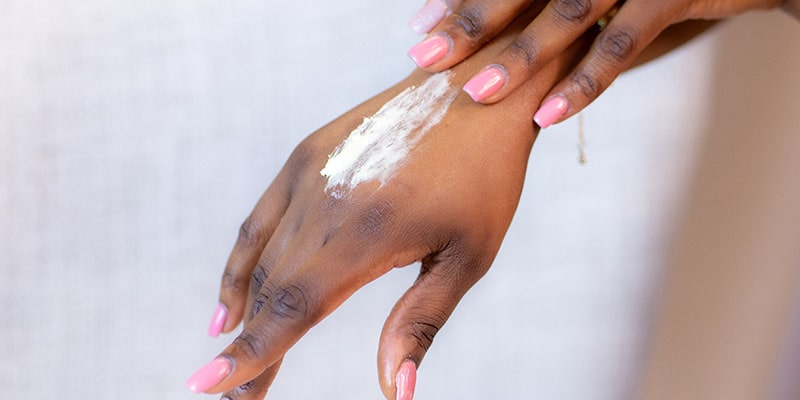Shea Butter is a natural substance that is extracted from the nuts of the Shea Tree in Africa. It is rich in Vitamin A, which makes it a soothing balm for various skin conditions. It has a thick and creamy texture that is gentle enough even for the most sensitive or damaged skin. By providing skin-restoring Vitamin A directly to the affected areas, shea butter immediately softens and heals the skin. Apart from its skin softening properties, shea butter also acts as a barrier between your skin and harsh environmental elements, allowing your skin to heal naturally from deep within the layers of the skin to the delicate top layer. The benefits of shea butter are numerous and go beyond just softening the skin.
Shea butter can be formulated in various ways. Shea butter has been used as a cosmetic ingredient for centuries. Its high concentration of vitamins and fatty acids — combined with its easy-to-spread consistency — make it a great product for smoothing, soothing, and conditioning your skin.
Containing high levels of linoleic acid and oleic acid. These two acids balance each other out. That means shea butter is easy for your skin to fully absorb and won’t make your skin look oily after application. Great to use during the summer months as an emollient shea butter naturally protects the skin for environmental stressors, acting as a mild SPF adding an additional layer of protection for UV rays. During the winters months its a barrier protecting properties lock in moisture, protecting the skin from windchill and drying winter. Shea butter is an excellent option for most people seeking a moisturizer, providing soothing benefits to all skin types.
Facts About Shea Butter
- Non-comedogenic: Shea butter is non-comedogenic, meaning it won’t clog your pores. This makes it a good choice for acne-prone skin.
- As an emollient, which helps trap moisture in the skin, making shea butter a great addition to a skin regime for dry skin.
- It has antioxidant properties: Shea butter exhibited antioxidant and anti-inflammatory properties that benefit the skin.
- It may relieve itchiness: Shea butter may help reduce the itchiness associated with skin conditions such as atopic dermatitis.
Lotion
Lotions, on the other hand, have a lighter consistency compared to body butters. They’re made by combining oil and water with an emulsifier that helps these two ingredients blend together seamlessly. Some lotions also contain humectants like glycerin or hyaluronic acid that attract moisture from the environment into your skin.
Due to their high water content, lotions absorb quickly into the skin without leaving a greasy residue behind. They provide instant hydration and are ideal for normal to oily skin types or for use during warmer months when your skin doesn’t need as much moisture.
However, the moisturizing effects of lotions don’t last as long as body butters. This means you may need to reapply them more frequently throughout the day to keep your skin hydrated.
Choosing Between Body Butter and Lotion
Now that you understand the basic differences between body butter and lotion, how do you decide which one is right for you? The answer largely depends on your skin type and personal preferences.
If you have dry or mature skin that needs deep hydration, body butter could be your best bet. Its rich, creamy texture will provide intense moisture and keep your skin soft and supple. It’s also a great choice if you live in a cold or dry climate where your skin needs extra protection from the elements.
On the other hand, if you have normal to oily skin or live in a humid climate, a lotion might be more suitable for you. Its lightweight formula will hydrate your skin without making it feel greasy or heavy.
